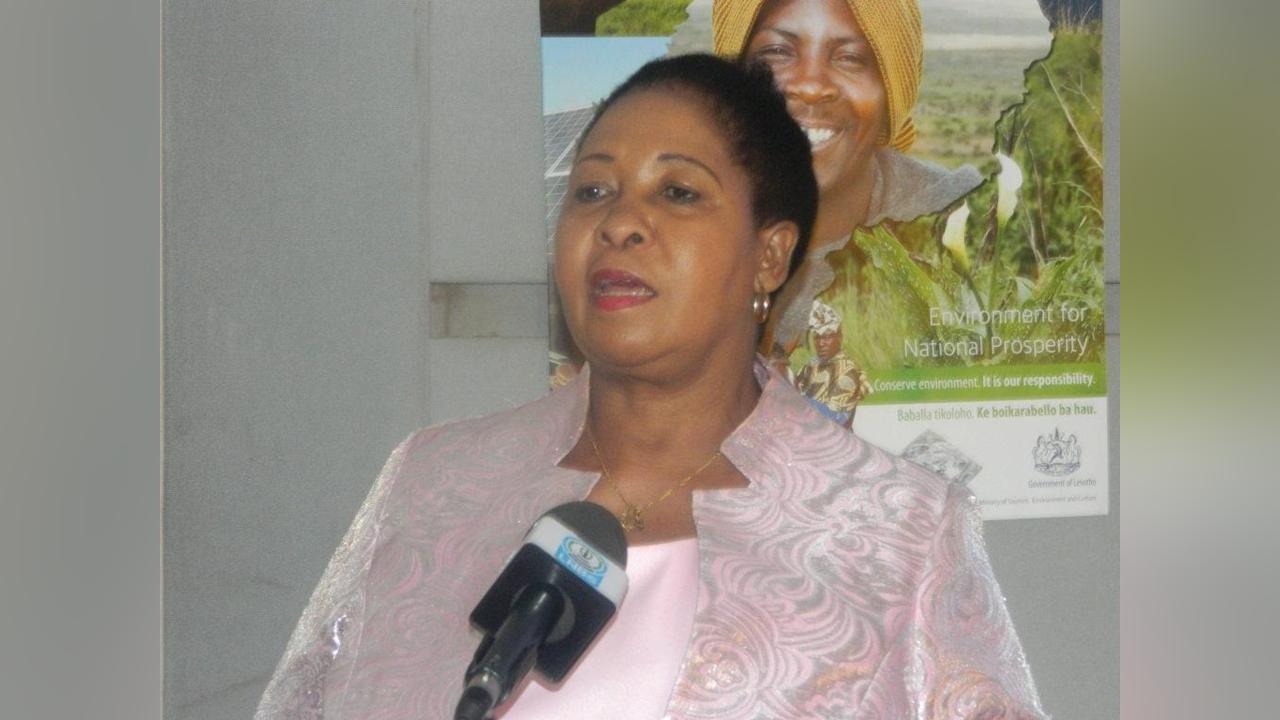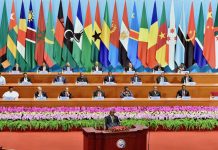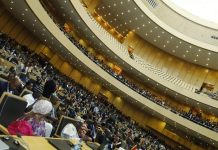Africa-Press – Lesotho. Government between 2015 and 2017 paid Nedbank M75 million to settle loans for outgoing legislators under a controversial scheme the courts and the Auditor-General have described as “unjust enrichment”.
Public Eye
can report that Auditor-General Lucy Liphafa reckons Lesotho’s Members of Parliament both in the National Assembly and Senate, have been “unjustly enriching themselves”.
This was because the MPs had continued to access fresh government guaranteed loans despite failing to clear outstanding debts incurred during previous parliaments. She has now proposed legislation to “alleviate unjust enrichment” which has seen returning MPs pocket a fortune.
According to Liphafa, MPs who were members of the 8th and 9th Parliaments and whose loans were written off in 2015 and 2017 consecutively, went on to draw M500 000 as members of the current 10th Parliament “in spite of previous loans being written off”.
This means some MPs have accessed a whopping M1,5 million in loans in the last four years, paying back a pittance. The Lesotho government acts as a guarantor for all the MPs who are granted loans by the Nedbank and if a member defaults in paying the balance, the government settles the balance.
In her recently released 2017/18 “Report of the Auditor-General on the Consolidated Financial Statements of the Government of Lesotho”, Liphafa revealed that 55 MPs whose loans were written off on two previous occasions, went on to take more loans despite that constituting a substantial loss to government.
The Auditor-General further noted that government had, as a result, lost M75, 777, 223 to the cancellation for MPs’ loans because of parliament dissolving before the end of its constitutionally prescribed five-year term, broken down into M32, 229, 285 for the 8th Parliament and M43, 547, 948 for the 9th Parliament.
“Amongst other benefits to the honourable MPs are interest-free loans of M500 000 payable within parliament’s constitutional life.
The Lesotho government acts as guarantor for all the MPs who are granted loans by the Nedbank and if a member defaults in paying the balance, the government should repay the outstanding balance to the bank,” Liphafa said in her report.
“I have noted that in April 2015, government had written off an amount of M32, 229, 285 as loss in respect of the members of the 8th Parliament and another loss of M43, 547, 948 in December 2017 for MPs of the 9th Parliament.
“I have further noticed that some of the members whose balances were written off by the government in 2015 and 2017 have been granted new loans in the amount of M500 000 during the 10th Parliament in spite of the fact that previous outstanding loans had been written off.
The report indicates that some MPs whose loans were annulled for the past two parliamentary terms, were granted fresh M500 000 loans in the current parliamentary term, despite outstanding loans resulting in substantial losses to government.
For that reason, Liphafa proposed in the report that government should enact a law to “alleviate unjust enrichment” by “prohibiting MPs whose debts were written off to draw more loans”.
“The repayment of outstanding loans for honourable MPs following dissolution of parliament before the expiration of the constitutionally specified term constitutes substantial loss of funds to the government,” Liphafa said.
“The loss calls for a need for the government to consider enactment of a law that will alleviate unjust enrichment such as prohibiting MPs whose loans were previously written off to access new loans.
The loans in question have been at the centre of political squabbles, with accusations that Lesotho’s coalition governments have barely lasted for two years since formation of the first in 2012.
This is largely due to MPs precipitating premature dissolution of parliament and subsequent elections, allowing those who bounce back to take more loans as governments settle previous debts with Nedbank.
Liphafa’s views echo sentiments of the Constitutional Court, which in October asserted that “government’s policy of settling MPs loans is unjust enrichment of parliamentarians”.
The court said the policy was discriminatory, unfair and violated the rights of other citizens by placing MPs in a different class above other beneficiaries of the government’s loan scheme “who have to pay out of their pockets”.
“It is sad that parliamentarians in this case benefited from a tellingly unfair regulatory based discriminative policy which violates the rights of other citizens and attenuates a prima facie created opportunity for the unjust enrichment for parliamentarians.
This the court said after Dr Fako Likoti, Political Advisor to former Prime Minister Pakalitha Mosisili, sued Prime Minister Thomas Thabane and his government for failure to pay his gratuity after vacating office as political advisor to Mosisili. His gratuity was used to recover money used by government to settle the M500 000 loan he took while he was still in office.
Legislators, Principal Secretaries (PSs) and other specified officers who qualified for the benefit also took out the same amount in loans but when it assumed power, the current government settled the loans on behalf of legislators, the PSs and other officers, including Likoti.
However, on January 25, 2018, the then PS in the ministry of finance, Nthoateng Lebona directed the Public Officers Defined Contribution Fund principal officer, Thabo Thulo, to deposit the pensions of the PSs in the previous regime, including Likoti’s, into the government bank account not into the former officers’ accounts, save for the former MPs.
According to the loan scheme/policy, government is a guarantor but a decision was reached by Parliament that government would only pay the remaining debts of the borrowers who were parliamentarians while those of others, including Likoti’s, would be settled through seizing their gratuities.
Likoti argued that the decision was unconstitutional and discriminatory. He asked the ConCourt to declare the decision unconstitutional and asked it to direct the Minister of Finance to provide funds for payment of his gratuity.
The Court agreed with him and declared non-payment of his gratuity unconstitutional and said Likoti was discriminated against when his monies were held. The court also ordered the Ministry of Finance to pay Likoti’s monies.
In its judgment, the court said the policy was discriminatory for paying for MPs while others were made to pay from their own pockets yet they were all borrowers from the banks.
“The policy was unfairly discriminatory since it classified people whose basic and material commonality is that they are borrowers of money from banks under the same scheme and with the same terms and condition and that being a member of parliament is contextually irrelevant to justify the measure.
The court also said: “The advantageous debt forgiveness accorded to the parliamentarians in contrast to the disadvantageous one given to the applicant and others reinforces the unfairness of discrimination.
Justices: Lisebo Chaka Makhooane, Molefi Makara and Keketso Moahloli pointed out that parliamentarians benefited from an unfair policy that violates the rights of other citizens adding that the policy was not scrutinised before being passed as law.
“This justifies skepticism that parliament dedicatedly interrogates and censure delegated legislation before it accepts it as law.
This could be attributable to the composition of Parliament and the relationship between the majority of its members and the executive,” read the judgment in part.
It further stated: “It appears that realism dictates that the moment has come for our constitution to be reformed in favour of a separation of the membership of parliament from that of the Executive.
This would enhance separation of powers as one of the key pillars in the rule of law, maintain good governance and strengthen checks and balances against possible excess by the Executive and mitigate the subjectivity inherent in the party line voting.
“Possibly, it escaped the wisdom of the 10th parliament to realise that in this regard, it ought not to have inherited the legacy bequeathed unto it by its predecessor and have its conscience somehow disturbed by having some members of parliament benefiting more than once from the same scheme.
” The judges emphasised the need for an amended constitution that would ensure checks and balances.
“Perhaps time has come for a constitution which would more meaningfully separate members of Parliament from those of the Executive.
This would exclude party line voting in the House for the enhancement of objectivity in that respect, good with stability, peace and prosperity for generations and generations to come.
Just like Liphafa, earlier this year, the Public Accounts Committee (PAC) recommended a new law to ditch legislators’ loans guarantees saying the loans cost Lesotho’s ailing economy a whopping M108 million.
In its report released in May, the PAC recommended that members of parliament’s salaries (Amendment of schedule) regulation, 2019, all sections to statutory loans must be revoked.
“The minister of finance must bring the bill to parliament for repeal within 30 days,” the report stated.
The report indicated that by the end of 2014/15, there was an outstanding balance of M31, 472, 844 for guaranteed loans to members of parliament, senate and other statutory position holders which were fully repaid by government in April 2015 after dissolution of the Eighth Parliament.
It further stated that, “additional M617, 039 was paid as interest for these loans. The total that the government paid was therefore M32, 089, 883”. The same repayment of loans for members of parliament, senate and other statutory position holders was done after the dissolution of the Ninth Parliament.
For More News And Analysis About Lesotho Follow Africa-Press






